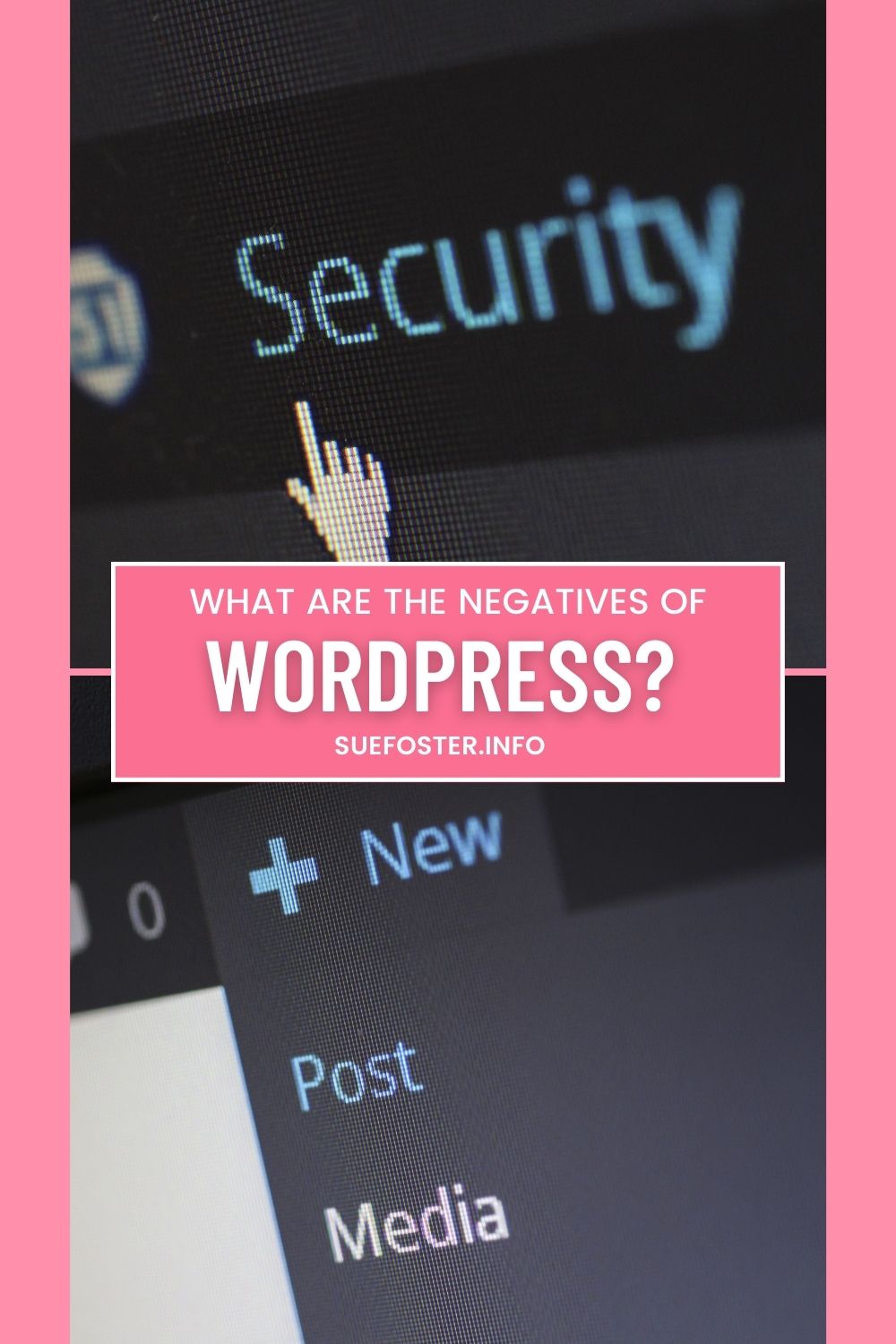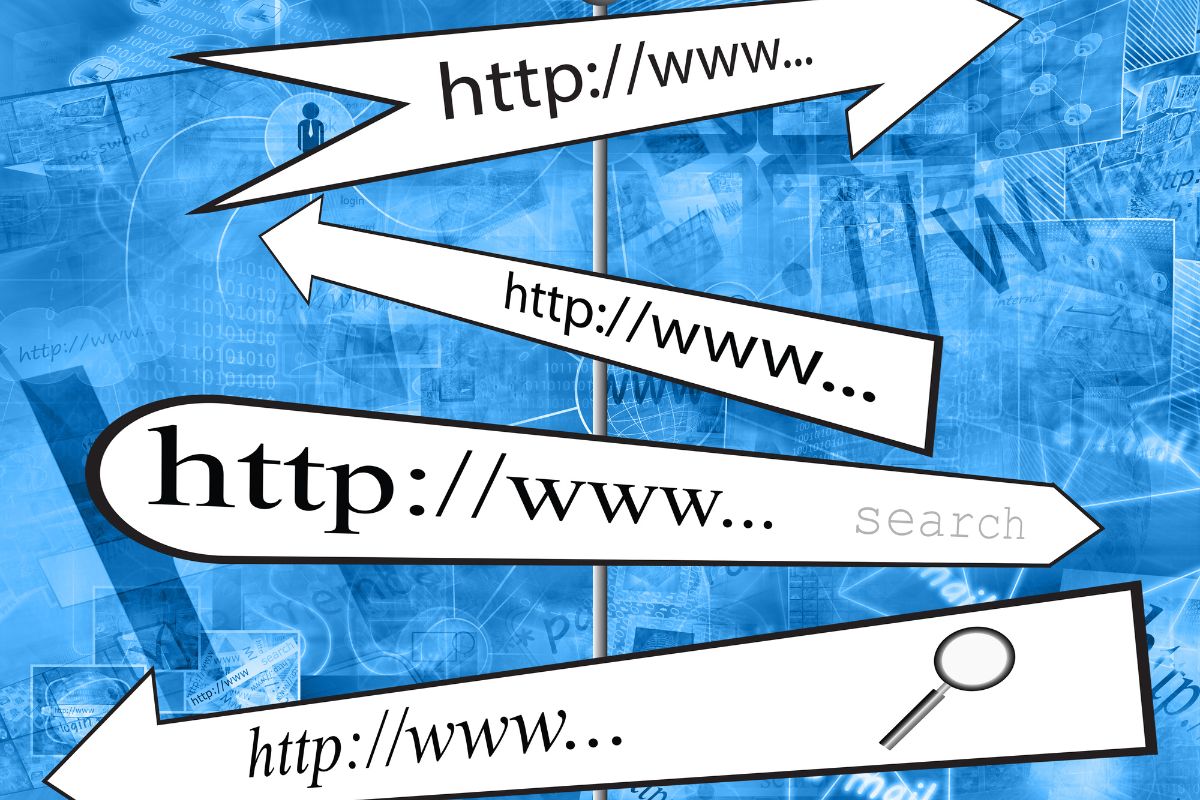WordPress is a widely used content management system (CMS) that powers a significant portion of websites on the internet. While it offers many advantages, it also has some drawbacks and negatives. Here are some of the common negatives associated with WordPress:

Security Concerns
WordPress is a popular platform, making it a target for hackers. If you don’t keep your WordPress installation, themes, and plugins up to date, your site may become vulnerable to security breaches. However, regular updates and security plugins can help mitigate this risk. Use security plugins like Wordfence and make sure your theme is regularly updated by the developer.
Performance Issues
WordPress websites can sometimes suffer from performance problems, especially if they are overloaded with plugins and themes. It’s essential to optimize your site, use caching, and choose a reliable hosting provider to maintain good performance.
Complexity for Beginners
While WordPress is user-friendly compared to some other CMS platforms, it can still be challenging for beginners to grasp, especially if they have little technical knowledge. Learning how to navigate the admin interface, upload a theme and troubleshoot issues can take time.
WordPress Maintenance
Keeping a WordPress site up and running requires ongoing maintenance, including updates to the core software, themes, and plugins. Failing to perform these updates regularly can lead to compatibility issues and security vulnerabilities. If you don’t want to have to deal with the core updates, I suggest getting managed WordPress hosting.
Plugin Compatibility
Not all WordPress plugins are well-maintained or compatible with each other. Installing too many plugins or using outdated ones can result in conflicts, slow performance, or unexpected errors. I suggest removing any plugin that isn’t updated regularly by the developer and to only using plugins that you really need.
Customization Learning Curve
While WordPress offers a range of customization options, creating highly customized designs and functionalities often requires knowledge of HTML, CSS, and PHP. This can be challenging for users who are not familiar with these technologies.
Purchasing a well-designed theme with step-by-step installation instructions will help you create a professional-looking website.
Bloat
Over time, a WordPress site can accumulate “bloat” in the form of unused themes, plugins, and data, which can slow down the site and make it harder to manage. Regular cleanup is necessary to prevent this issue.
Dependency on Third-Party Tools
WordPress relies heavily on third-party themes and plugins for extended functionality. Relying on too many third-party tools can lead to issues when those tools are no longer maintained or become incompatible with WordPress updates.
Limited Built-in E-commerce Functionality
While WordPress can be used for e-commerce through plugins like WooCommerce, it may not be as feature-rich as dedicated e-commerce platforms like Shopify or Magento. This limitation can be a drawback for businesses looking for advanced online selling capabilities.
Search Engine Optimization (SEO) Challenges
While WordPress is generally SEO-friendly, achieving optimal SEO results can be challenging without additional plugins and optimization efforts. You may need to invest time and effort in optimizing your site for search engines. Use an SEO plugin like AIOSEO, a powerful and user-friendly tool that streamlines SEO tasks, from optimizing on-page content and meta tags to generating XML sitemaps and managing social media snippets.
Scalability Concerns
While WordPress can handle small to medium-sized websites well, very large or high-traffic sites may require extensive optimization and infrastructure upgrades to maintain performance and stability.
Despite these negatives, WordPress remains a popular and versatile platform for building websites, I use it and have been for many years. These issues can be mitigated with careful planning, regular maintenance, and making informed choices when selecting themes and plugins. Additionally, the large and active WordPress community provides resources and support to address many of these challenges.



